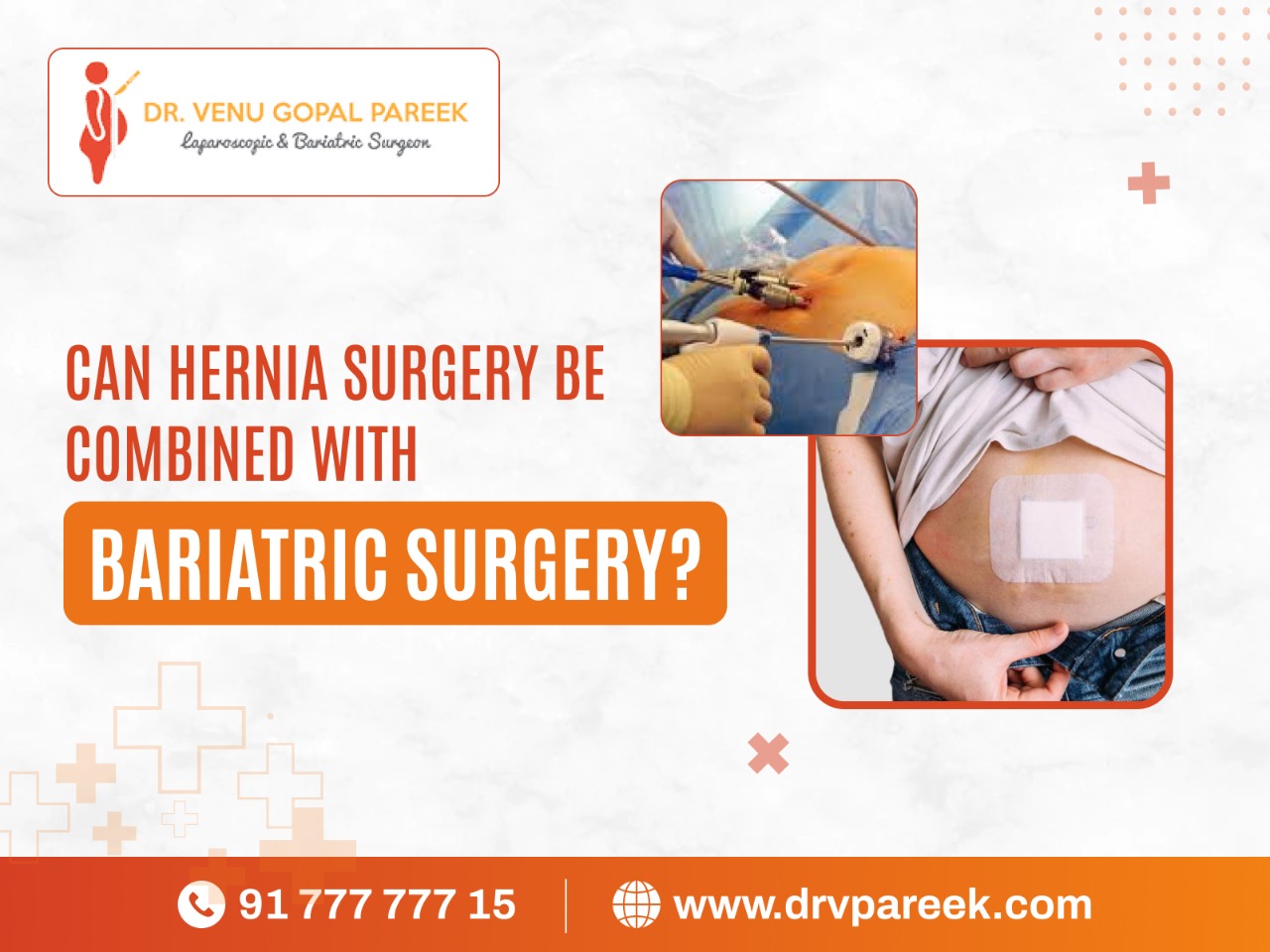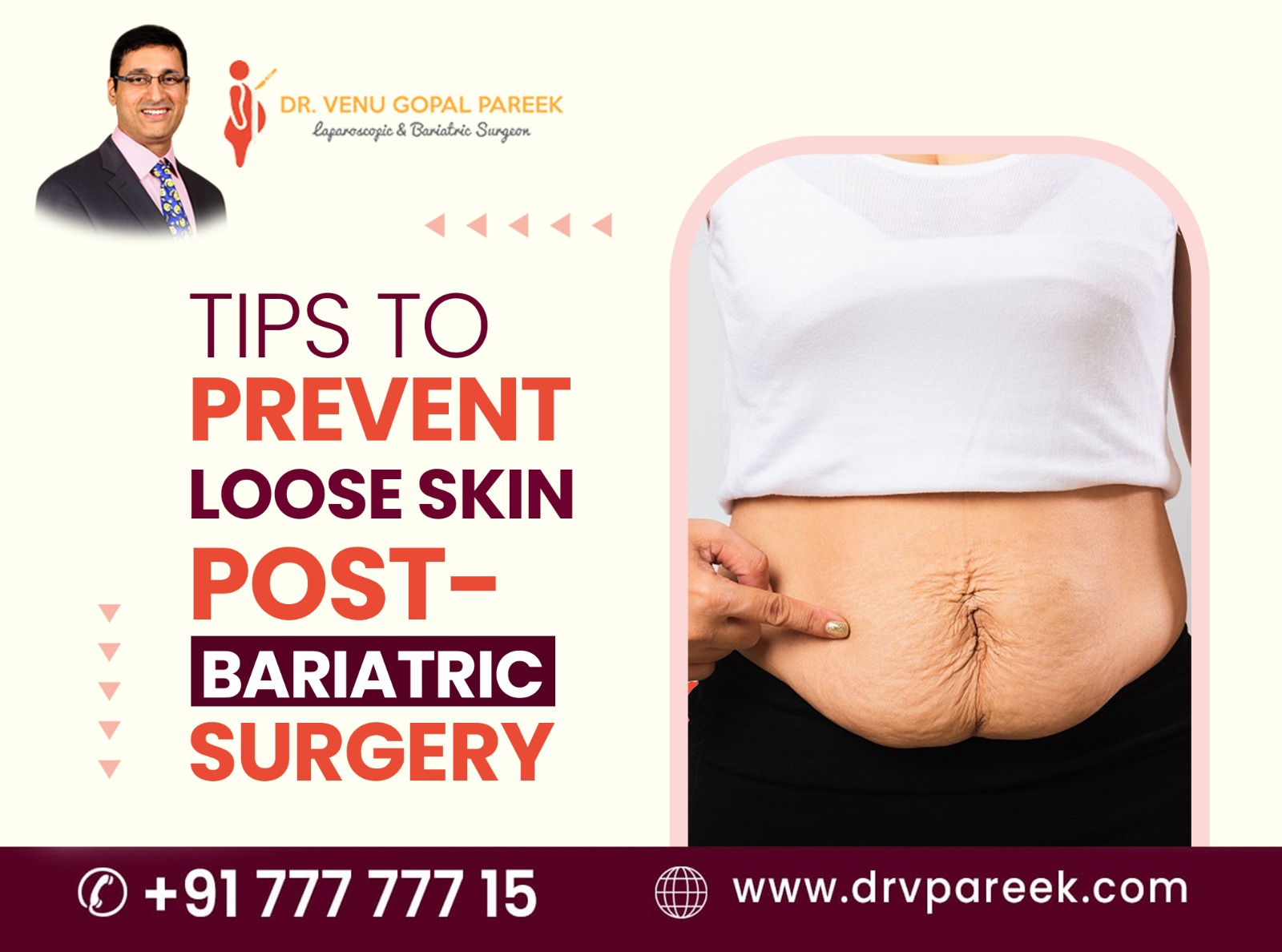
Can Hernia surgery be Combined with bariatric surgery ?
It has been said that obesity plays a significant role in the development of Hiatal hernias and ventral incisional hernias. Surgical procedures for repairing hernias during bariatric surgery are controversial.
Many people are not aware that sleeve gastrectomy also known as gastric sleeve surgery (weight loss surgery) can be done in combination with hiatal hernia repair surgery.
For patients suffering from morbid obesity who need both hernia repair and gastric sleeve surgery, both can be performed during a single surgical session. Combined hernia repair and bariatric surgery can improve your health while saving you time and money. Below are the details.
What is Hiatus Hernia?
A hiatus hernia is a condition in which a part of the stomach protrudes into the chest through an opening in the diaphragm. The muscular layer that divides the chest from the abdomen is called the diaphragm. Hiatal hernias are common and usually don’t cause any symptoms. When symptoms do occur, they may include heartburn, chest pain, difficulty swallowing, and a feeling of fullness after eating. Treatment is usually not necessary unless the hernia is causing significant symptoms.
During the surgery to repair the Hiatal hernia, the hernia is pushed back into the abdomen and the opening in the diaphragm is tightened to prevent it from happening again. In some cases, the hernia may need to be repaired with a mesh or other material to help keep it in place.
Hiatal Hernia and Obesity
Obesity is a risk factor for hiatal hernia and around 50% of obese people have a chance of developing a hiatus hernia. This occurs because the extra weight associated with obesity can increase intra-abdominal pressure, which can cause the stomach to move upward and into the chest. Additionally, obesity can weaken the muscles and ligaments that keep the stomach in its proper place. Treatment for hiatal hernia typically involves lifestyle modifications, such as weight loss, to reduce the pressure on the diaphragm and the stomach. In some cases, surgery is necessary for better health.
Hiatal hernias are more likely to develop in pregnant and obese women.
Gastric Sleeve Surgery or Sleeve Gastrectomy
Gastric sleeve surgery, also known as sleeve gastrectomy, is a type of bariatric surgery that involves reducing the size of the stomach by up to 70% to 80%. This is done by removing a large portion of the stomach, leaving a narrow sleeve-shaped stomach that is about the size of a banana. The surgery can reduce the amount of food a person can eat and reduce hunger levels, leading to weight loss. It is usually combined with lifestyle changes, such as eating a healthy diet and getting regular physical activity.
How is the sleeve gastroplasty performed simultaneously with the hernia repair?
Sleeve gastrectomy and hernia repair are performed simultaneously in a single session through laparoscopic which requires making small incisions in the abdomen. Hernia can be repaired either before or after gastric sleeve surgery. If the hernia is repaired first, then the surgeon proceeds to perform sleeve gastrectomy, which involves, the stomach being divided and removed to create a smaller, sleeve-shaped paunch.
Both procedures can be performed laparoscopically.
The remaining stomach is then reconnected to the oesophagus and small intestine. Finally, the incision is closed and the patient is monitored for any post-operative complications.
Does combining hiatus hernia repair and gastric sleeve surgery work?
In recent years, a group of experts conducted a study (over 18 months) on eleven obese patients who had undergone laparoscopic sleeve gastrectomy (LSG) and hiatal hernia repair (HHR) simultaneously. It was estimated that the average weight of all participants was 276 pounds with a BMI of 44.75.
GERD was present in ten of the eleven individuals. One of the patients experienced absolutely no symptoms. But the hernia of that person becomes apparent while doing a separate surgery.
Five patients among them even had chronic gastritis in addition to GERD.
All the patients underwent laparoscopic sleeve gastrectomy and hiatal hernia repair and none of them showed any indications of problems after the procedure.
The study revealed that it is possible to achieve excellent results by combining these two surgical procedures. Following the operation, eight of the eleven patients no longer experienced GERD symptoms.
In four cases, they stopped taking their antireflux medications. Although the two patients’ symptoms decreased, they continued to take proton pump inhibitors.
Based on the results of the study, the researchers figured that LSG and HHR together are not only safe but also provide excellent outcomes.
However, it may not be suitable for everyone, so it is best to discuss the risks and benefits with your doctor before making a decision. To know more details consult Dr. Venugopal Pareek, one of the best laparoscopic surgeons and bariatric surgeons. He has immense experience in performing hernia repair surgery and weight loss surgery. He is one of the few surgeons in Hyderabad, who can perform hernia surgery and bariatric surgery simultaneously. Call +91 91-777-77715 to book your appointment with the doctor.







